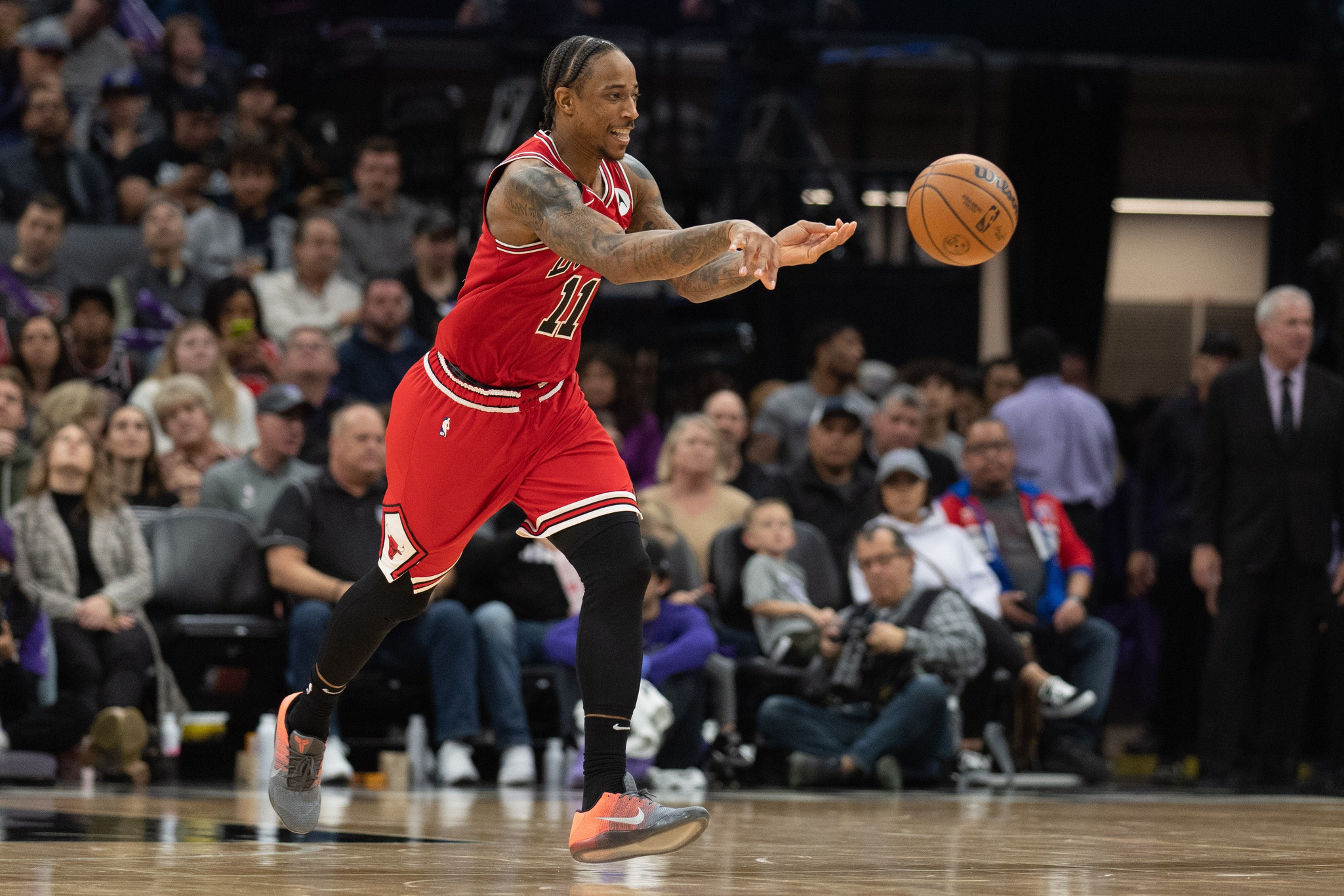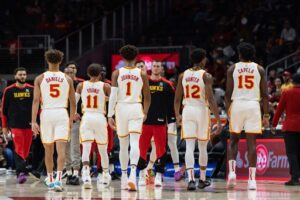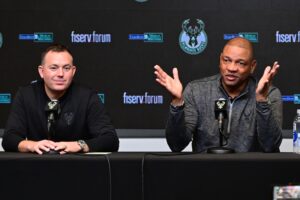Although DeMar DeRozan is among the most popular players in the NBA, a few league insiders believe that the Chicago Bulls and Sacramento Kings both erred in their respective roles when the 34-year-old was sent from Chicago to Sacramento in a three-team sign-and-trade.
“The Bulls moved DeRozan and watched the (San Antonio) Spurs come away with the only significant asset in the trade,” writes ESPN insider Tim Bontemps. “As for Sacramento, those who cited that deal didn’t like the fit of DeRozan with the Kings.”
NBA Insiders Reveal True Thoughts About DeMar DeRozan Trade
Interestingly, despite the amount of interest DeRozan generated in free agency, the Bulls didn’t push for teams to include at least one first-round pick to acquire him in a sign-and-trade.
Of course, this may have elongated the process of moving him; teams are reluctant to part ways with draft assets. Furthermore, Chicago’s cupboard isn’t empty. Indeed, they hold a first round pick in every draft through at least 2031. Nonetheless, the 2025 first-round pick that the Bulls own isn’t their own, coming via the Portland Trail Blazers. It’s also lottery-protected, making it unlikely to convey to Chicago.
With the 2025 NBA Draft considered to be one of the best in years though, trading a six-time All-Star for two second-round picks (and a trade exception) is negligent roster-building. Especially with DeRozan coming off of two of his most memorable seasons.
Ironically, if the Bulls wanted to get their own 2025 first round pick back, they’d have had to get their legacy out of the Spurs’ house. In 2021, Chicago traded a first-rounder to San Antonio for DeRozan. Yet, they allowed the Kings to send the Spurs both Harrison Barnes and a 2031 first-round pick. Even worse, San Antonio didn’t give up any assets or players for this package; they just fleeced them.
The Bulls may be able to move Josh Giddey, Coby White, or Ayo Dosunmu for a first-rounder. Yet, this is largely due to their relatively youth and potential. To cement their trade value, they all would need to step up their game up, being more assertive and consistent offensively.
Unfortunately for Chicago, they’re in a pickle as far as playing time. Because they didn’t move Zach LaVine or Lonzo Ball, there are five starting-caliber players vying for minutes in the backcourt. It’ll be hard for any of them to stand out without sacrifice.
The King’s Clunky Court
Speaking of missed (or a lack of) opportunities, DeRozan’s impact on Keegan Murray is also considered problematic.
“The opportunity cost of not giving runway to Keegan [Murray]… and a bad bet on the fit,” has caused at least one Eastern Conference to turn his nose up at the DeRozan deal.
Murray, now heading into his third season, has been Dr. Jekyll and Mr. Hyde so far in his career. As a rookie, the former fourth overall pick dazzled with 12.2 points per game on 41.1 percent shooting from 3. An exceptional defender as well, he appeared primed to replace Barnes. However, while raising his scoring average in 2023-24, he was much more unreliable. In 77 games, Murray averaged 15.2 points per contest but on 35.8 percent shooting from deep.
With Barnes now playing for the Spurs, Murray could be to team’s go-to off-ball threat. However, DeRozan is more of a forward than backcourt player at this point of his career. With Malik Monk vying for a starting spot and Kevin Huerter starting 141 of the 146 games he’s played with the Kings (playoffs included), there’s even more reason to believe DeRozan will start at a forward spot.
In either scenario, DeRozan’s a forced fit.
If he starts in the backcourt, his need to have the ball in his hands will decrease De’Aaron Fox’s on-ball opportunities. Because he takes a heavy diet of midrange attempts, he’ll also shrink the floor. Defensively, his lack of lateral agility could leave him vulnerable to shifty ball-handlers. His lack of consistent effort makes the idea of him guarding players who heavily rely on screens especially concerning.
If he starts in the frontcourt, he lacks the ideal length to guard power forwards at 6-foot-6. Yet, if he’s at small forward, opposing teams may look to attack from the wings. With Domantas Sabonis’ uninspiring interior defense, this could handicap them from outset.






